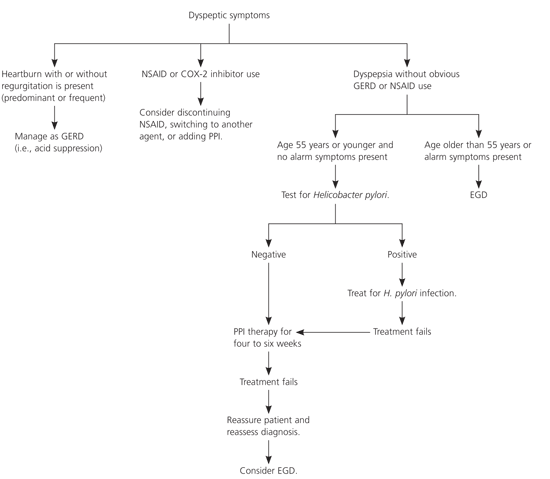
Am Fam Physician. 2006;74(1):185
The American Gastroenterological Association (AGA) has released a position statement to reflect new evidence on the evaluation of dyspepsia. The report was published in the November 2005 issue of Gastroenterology.
The AGA defines dyspepsia as chronic or recurrent pain or discomfort in the upper abdomen. Because there is considerable overlap in the definitions of dyspepsia and gastroesophageal reflux disease (GERD) (i.e., frequent heartburn or acid regurgitation), the AGA recommends further research to better define dyspepsia.
GERD and the use of nonsteroidal anti-inflammatory drugs (NSAIDs) may cause dyspeptic symptoms. If no obvious GERD or NSAID use is present, the AGArecommends that patients 55 years or younger without alarm symptoms be tested for Helicobacter pylori infection. Esophagogastroduodenoscopy is recommended for patients who are older than 55 years and those who have alarm symptoms. The accompanying figure presents an algorithm for the management of dyspepsia.
